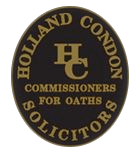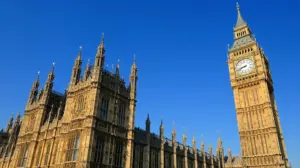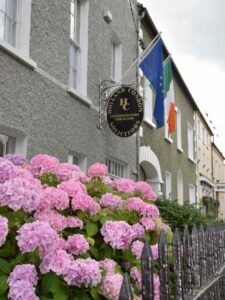20th February, 2024
So you have paid a deposit to the auctioneer and have your finance in order. Here’s a few points worth doing when you purchase a property and what we ask our purchaser clients to do:-
- LOCAL ENQUIRIES
You should check with people in the locality, including neighbours, to get a sense of whether there are any issues with the property or with the Vendors. You may be informed of something that would influence whether you would buy the property.
- SURVEYS, PLANNING, BOUNDARY, ROADS AND SERVICES
You should NOW engage the services of an Architect/Engineer/Surveyor (i.e. a Planning Expert) to check out (1) Planning Search and Planning Compliance Report; (2) Mapping inspection to check area of property involved and survey of same to include boundary comparison; with survey of roads and utility services; (3) Structural Survey (if there is any structure there) + Property Condition Report and (4) Environmental Survey + Search.
Your expert should provide all reports directly to you and advise you first.
Your expert can certainly start the survey/searching process now as it can take some weeks for the local authority to make planning + environmental files/registers available.
In this regard, we would ask your expert to provide advice to you on the following: –
- Planning Compliance – Get AN UP-TO-DATE Certificate or, as a minimum, a Report from that Expert confirming that they have inspected the property from a Planning point of view and that the property as it presently stands complies with Planning Permission(s); that there is no material planning issue; and the property complies with Building Regulations. We may be given planning compliance documents from the Vendor but, as I said, we cannot rely on what they say or give. In the past, people were certifying and signing all sorts of untrue matters regarding planning. You need to be satisfied. This Planning/Building Regulations compliance certificate or report is to be given to us.
- Water + Sewerage Services – Get written confirmation from your expert regarding the whereabouts of the septic tank + percolation and water (these must be within the boundaries of the property) and confirm, if at all possible, that there are no pipes servicing the property going through anyone else’s property. We will need to know if your water is on the mains, or from a well located within the property being sold, or from a group water scheme. If it is the latter (group water scheme), find out the name of the organisation, the person who runs it and their phone number and details of any annual charge. We will need to know if the sewerage is on the mains or to a septic tank (and percolation area) located within the boundary of the property being sold. Do any of the supply pipes traverse someone else’s property, and if so, do we need to check the contract papers for appropriate written agreement(s)?
- Access to the property – Your expert must set out in writing details of access to the property i.e. preferably, access is directly from public road. Again, you can give this confirmation to us and we will put it with your deeds.
- Maps -v- physical boundaries – Confirm that the legal map corresponds with boundaries on the ground. Once we receive a copy of the legal map we will send it to you. Your expert can still be doing the survey at this time and then do a comparison once the legal map is available.
- The last 3 paragraphs relate to what is known as a Certificate/ Declaration of Identity from an appropriately qualified and insured expert declaring that the legal map reflects the boundaries on the ground; certifying the area ; that the property and its essential services are entirely within the boundaries; that the property and any separate part of it immediately adjoins a public road in charge of the local authority; that no service pipes go over any other property or if not that the relevant grant of easement is available. A copy of the legal map should be attached to the Certificate. If you get an Identity Certificate, then give it to us and we will keep it with your title documents. If issues of concern arise, then we need to know.
- Your expert should attach a copy of their current professional indemnity insurance to the Planning + Identity Certificates/Reports.
- The matters above should be addressed separately and not form part of any structural/condition survey report.
- Structural, Condition and Environmental Reports – These reports should be provided to you. Your expert needs to keep you informed of any issues arising. We do not need to see the Structural, Condition or Environmental Reports. Your expert should not send them to us as they are not legal matters for our consideration. They are matters for you to consider unless there is a legal concern arising, which would be highly unlikely to arise in most purchases.
- Planning Register Search – You and/or your expert should carry out a Local Authority planning search to check out and obtain a list of all planning applications for the property and their results; is any road widening proposed; any CPO’s on the property; zoning of property; any recorded enforcement issues affecting the property; is it or any part a protected structure or listed building; is there any planning permission or local planning matter/development planning matter in the locality that would affect your decision to buy e.g. building of a prison next door! An inspection of Environmental Registers should also be done at this time. You should consider all these and determine whether they affect your future intentions. I suggest you have a good discussion on this with your expert – if they were buying the property would they have any concerns on what they come across in the registers. Again, they are matters for you to consider unless there is a legal concern arising, which would be highly unlikely.
You should show the above to your expert. They may say that we are being overly cautious. It may also be the case that some or all of the above documents have been furnished by the Vendor. However, you cannot rely on these. Time and time again, we have come across false and incorrect certificates from the Vendor’s side that we’ve now reached a point that we now advise you to get your own. Unfortunately, it adds to your expenses in buying, but its money well worth spending. The potential is that you could have difficulty in selling the property in the future or have to get retention permission if planning is not in order or obtain rights of way for access/pipes with neighbours who may insist on getting lots of money. We want to ensure that you don’t end up with headaches. Property purchases and their development are huge expenses so spend a small percentage (relative to the purchase/development costs) on getting comprehensive surveys and advice.
I often wonder what reports would your expert get done if they were buying the property. I’ve set out my recommendations but they may have more.
- TAXATION
Where you are buying property (other than your principal home), you may need an accountant to examine the Capital Gains Tax, VAT, CAT and Stamp Duties position for you. We advise all clients that you engage one before signing any contract. If you are non-resident, then, please speak to us now about getting appropriate tax clearances. We can give you the name of our accountants if that’s of any use to you.
- PERSONAL PUBLIC SERVICES NUMBER
Since 1st January 2010, we now need you to give us evidence of the tax reference number and tax type of each Purchaser (generally your PPS number or PPSN). Any letter received from Revenue and dated within the last 12 months (like balancing statement or online printout from myRevenue or ROS etc.) will do as evidence (each purchaser will need one). You can blank out the financial info on this document. If you don’t have such a letter, then you need to contact your Inspector of Taxes or go online. This will be needed for Stamp Duty purposes.




